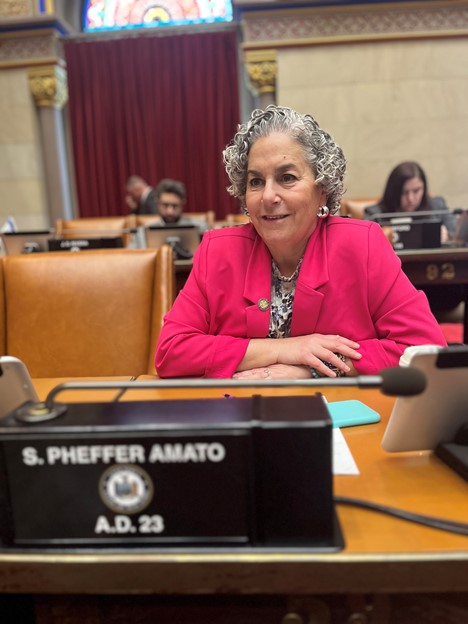Pheffer Amato Creates Funding Stream for Families with Cystic Fibrosis
Queens, NY – New York State Assemblywoman Stacey Pheffer Amato’s Cystic Fibrosis (CF) legislation recently went into effect, creating a program to reimburse the cost of providing health care to eligible individuals who have Cystic Fibrosis. Over the past years, Assemblywoman Pheffer Amato has worked hand-in-hand with constituents like Gretchen Fox and Michael Fox of Breezy Point, along with the Cystic Fibrosis Foundation, to provide funding and assistance to those with the disease. Prior to the Assemblywoman’s legislation, nearly all medication and treatment had to be paid out of pocket, often costing hundreds of thousands of dollars – but that changed through Pheffer Amato’s new law.
“This legislation directly affects the people who need it the most, individuals and their families battling with this rare disease. It will give those impacted by CF the resources they deserve so they can purchase medication, receive care and live the life they want. It’s been one of my biggest honors to work with the Fox family to get this bill over the finish line and create legislation that will save and improve lives,” said Assemblywoman Pheffer Amato.
Michael Fox, who helped promote the bill, was recently honored by the Cystic Fibrosis Foundation for his advocacy. “The New York Adult Cystic Fibrosis Assistance Program is finally providing much needed funds for those New Yorkers managing the financial burden of living with CF. This wouldn’t be possible without the support of our elected officials [Assemblywoman Stacey Pheffer Amato], the Cystic Fibrosis Foundation and the CF community – a total team effort,” said Michael Fox.
It is estimated that Cystic Fibrosis impacts over 1,600 New Yorkers by causing a rare genetic disease that damages the lungs and digestive system. According to the Cystic Fibrosis Foundation, CF is a mutation in the cystic fibrosis transmembrane conductance regulator (CFTR) gene that causes the CFTR protein to become dysfunctional. When the protein is not working correctly, it’s unable to help move chloride - a component of salt- to the cell surface. Without the chloride to attract water to the cell surface, the mucus in various organs becomes thick and sticky. In the lungs, the mucus clogs the airways and traps germs, like bacteria, leading to infections, inflammation, respiratory failure, and other serious and possibly life-threatening complications.

